
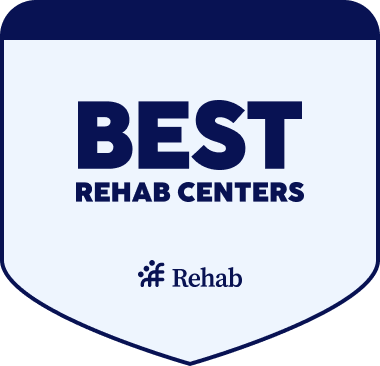
Drug Rehab for Teens: How it Can Help and What to Expect
Worried about a teen who may be struggling with drugs or alcohol? This guide explains the warning signs, treatment options, and what to expect in recovery so you can confidently choose the best teen drug rehab centers for your family.
Best Teen Drug Rehab Programs
| Name / Address / Rating | Description | Treatments / Payments / Programs | Review / Contact | Images |
|---|---|---|---|---|
Cave Creek, AZ 1
Top 10 in Teen Program
Rehab Score
Our Rehab Score is designed to make it easier for you to find the best treatment centers. We combine overall ratings with recent feedback to create a score that reflects a center’s quality right now.
8.90 / 10 | Soberman’s Estate, located in Cave Creek, Arizona, is an alcohol and drug rehab center that provides addiction treatment services to adult men, professionals, and public figures. They are a discrete, luxury rehab for individuals aged 30 to 80 years old. This location caps their treatment center at ten men at a time. Soberman’s Estate focuses on | Treatments Programs Payment Options | Soberman’s Estate was everything I needed for my recovery. The staff, the program, physical activity and culinary experience were top notch and essential. The program is well designed and worked better than I expected. The staff is remarkable – professional, considerate and genuinely caring. My time there and being removed from alcohol for five weeks was everything I needed to remove my craving for alcohol. Soberman has changed my life in ways I never could have imagined. I feel confident, secure and grateful for my new life. I have reconnected with my family and friends. Thank you Soberman.
George B.
3 months ago
Yes, very professional staff, treatment, therapist, chefs were good! even the home cook did the best she could, and loved the horses of Course! Saturday morning hiking was fun to explore the trails of the nearby mountain area!
John E Williams
3 months ago
I had a great experience overall and would recommend it to anyone wanted to jump start their sobriety!!
Kevin Crawford
3 months ago
| 
5 5 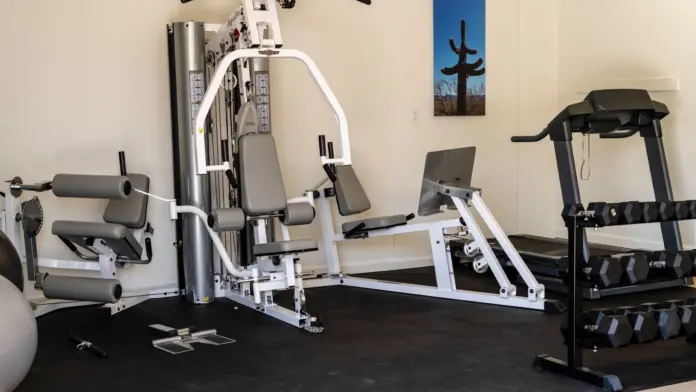



|
Clarksville, IN | Avenues Recovery Center in Clarksville, Indiana, is an inpatient drug and alcohol detox and rehab center. They strive to provide individuals receiving treatment with a loving environment and attentive medical care. You’ll be away from toxic environments and triggers and have the opportunity to focus on developing life skills that will support you | Treatments Programs Payment Options | I can never say thank you enough to this place and the wonderful people who work there!!!! I can honestly say in my recovery so far if it wasn’t for them getting me when they did I don’t know where I would be! I’ll forever cherish the memories of those who helped me!!!!
Cody Huber
5 days ago
I use to be against going to rehab until i was left with a choice with no return. Avenues has really helped me understand my addiction and helped me prepare for my next step into recovery. im thankful for Avenues.
Louis Koch
1 week ago
Avenues has a very detailed and comprehensive substance abuse program it is probably the best recovery program that I have been in and I expect will Aid me greatly in staying clean and sober this time
Tim Vance
1 week ago
| 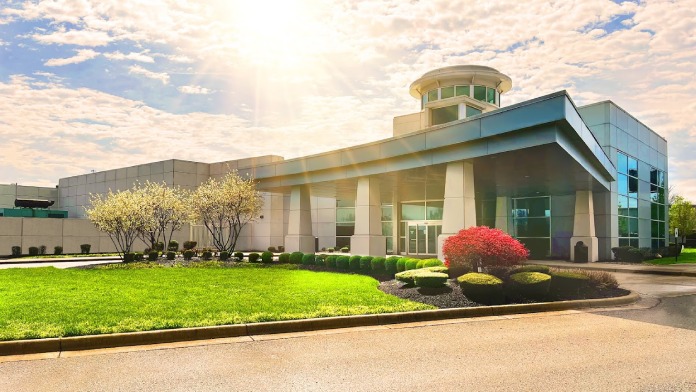
4 

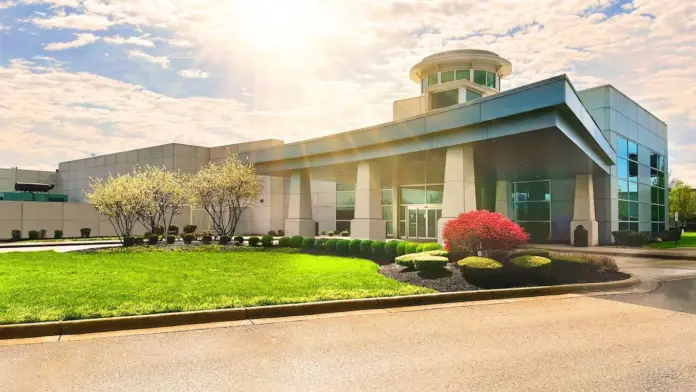
|
Simi Valley, CA 2
Top 10 in Teen Program
Rehab Score
Our Rehab Score is designed to make it easier for you to find the best treatment centers. We combine overall ratings with recent feedback to create a score that reflects a center’s quality right now.
8.81 / 10 | All In Solutions Detox in Simi Valley is one of the best ranked inpatient detox facilities in California providing safe, medically supervised care for individuals beginning their recovery from drug or alcohol addiction. As part of the All In Solutions Behavioral Health network, this facility serves as the first step in a full continuum of care. Cli | Treatments Programs Payment Options | This program dramatically help me get back on track in my recovery and was very well staffed and organized was an amazing experience.
Jacob Berghaus
1 week ago
I recommend calling the facility to confirm what the sales team tells you is true. The staff facility and people are great.
Amanda Cortes
2 weeks ago
The staff here is amazing and so helpful
Misty Rahe
2 weeks ago
| 
5 5 

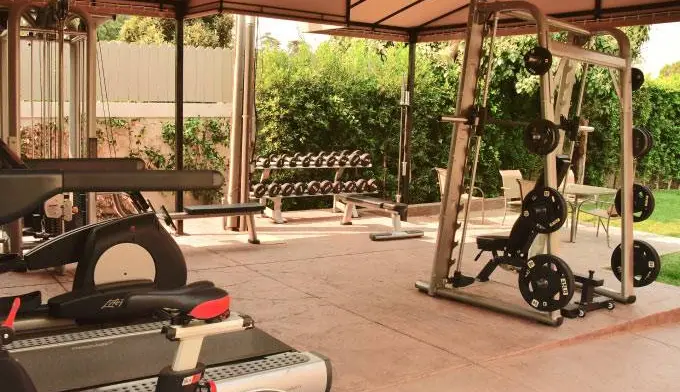

|
Hurst, TX 3
Top 10 in Teen Program
Rehab Score
Our Rehab Score is designed to make it easier for you to find the best treatment centers. We combine overall ratings with recent feedback to create a score that reflects a center’s quality right now.
8.80 / 10 | Symetria – Hurst Outpatient Rehab and Suboxone Clinic in Hurst, Texas, is a private drug rehabilitation clinic for adults. One of the best outpatient rehab centers in Texas, Symetria offers various withdrawal medications to help clients get started with their recovery journey. You’ll also have access to treatments such as the intensive outp | Treatments Programs Payment Options | Symetria is unbelievably amazing!!! The Hurst staff is phenomenal!!! I can’t imagine that another location has a better staff. A special shout out to Deborah, Benjamin, and Samantha of course. You all are doing amazing, amazing, selfless work. You all are very special to so many!!!
Vernon Godsey III
2 months ago
Huge shout out to the team at symetria who make me feel like family I appreciate everything they do and huge shout out to Osagie for helping me! He is AWESOME!!! I love you symetria❤️❤️❤️
Chloe Roseman
3 months ago
BEST PLACE EVER. I have tried various other doctors/clinics and none of them even begin to compare to this one. The staff here is absolutely amazing. I can’t even make a single complaint. Dr Son is the best as well. He explains everything and you truly feel like he understands you. I can proudly say this, this place saved my life. If you or someone you know needs help getting off opiates do it right the first time and come here. You won’t be disappointed. If you are specifically struggling with fentanyl please don’t waste your time with other ways. I have tried 6 other methods from lazer therapy to having the earpiece to suboxone. Methadone is the key to our current fentanyl crisis. This clinic makes recovery possible again!
Mason
3 months ago
| 
5 5 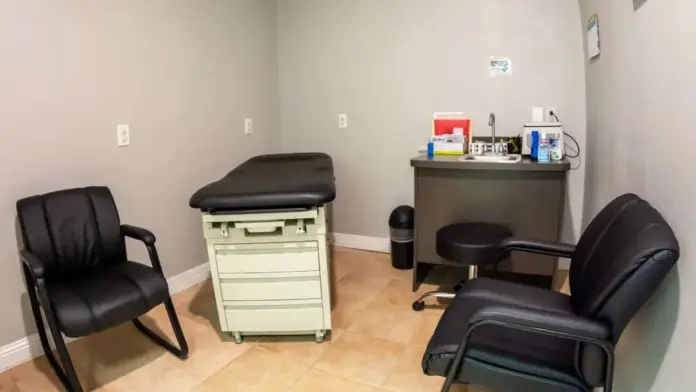



|
Boynton Beach, FL 4
Top 10 in Teen Program
Rehab Score
Our Rehab Score is designed to make it easier for you to find the best treatment centers. We combine overall ratings with recent feedback to create a score that reflects a center’s quality right now.
8.80 / 10 | All In Solutions Counseling Center is a mental health center and addiction treatment program in Boynton Beach, Florida. They provide a partial hospitalization program, an intensive outpatient program (IOP), an outpatient program, medication-assisted treatment, and mental health care for adults with substance use disorder. All In Solutions Counseli | Treatments Programs Payment Options | My time at All in Solutions has been the most valuable important decision I’ve ever made. I have nothing but love and respect and gratitude to all the staff who helped guide me to a freedom I thought I could never have!!! I love you guys from the depths of my soul!!! Thank you Thank you Thank you!!!!
Ben Rhea
6 days ago
Ms Karen from the Cherry Hill, NJ locations was just awesome. She called me every week to give me updates concerning my husband. She has been so helpful to keep me grounded and encouraged that I’m sure she did the same for her clients. I have to say she was the best, thank you Miss Karen for all you do and may God continue blessing you always..
Sandra Cornish
3 weeks ago
All in was a great program! The staff was amazing. Very helpful in my recovery! They were very attentive.
Mike Garcia
1 month ago
| 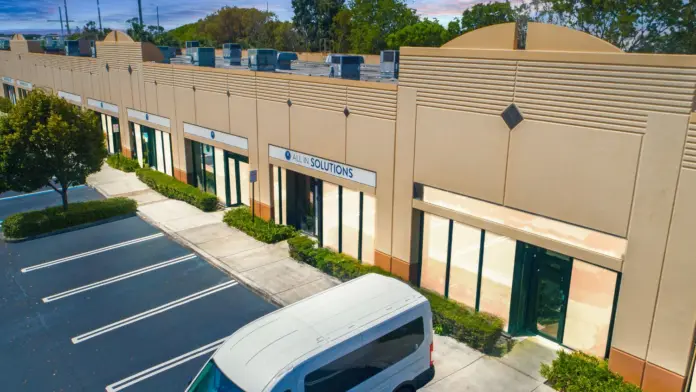
4 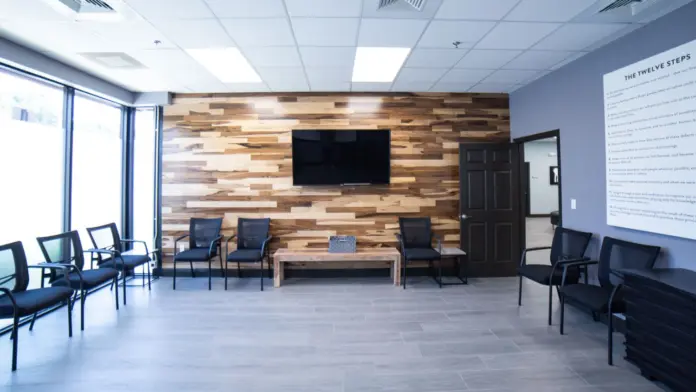
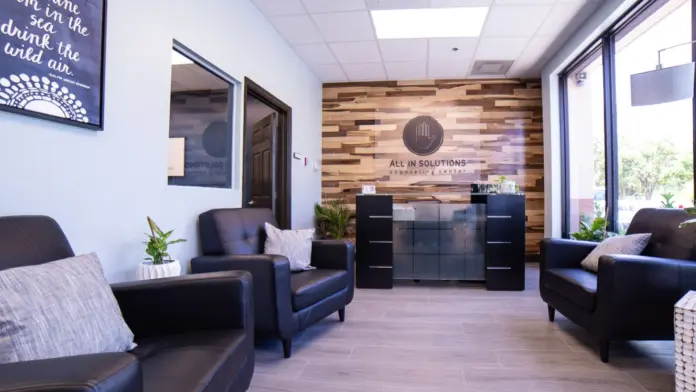
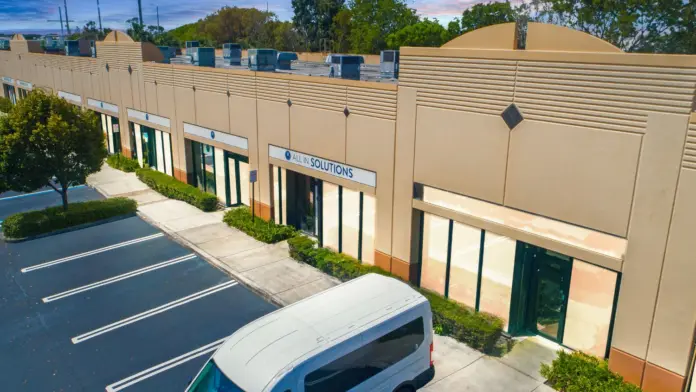
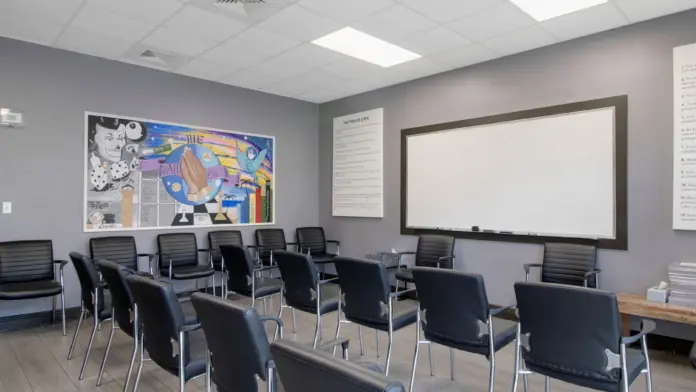
|
Galloway, NJ 5
Top 10 in Teen Program
Rehab Score
Our Rehab Score is designed to make it easier for you to find the best treatment centers. We combine overall ratings with recent feedback to create a score that reflects a center’s quality right now.
8.80 / 10 | Boca Recovery Center – Galloway is a drug and alcohol rehab in Galloway, NJ. They provide inpatient addiction treatment and medical detox. Boca Recovery’s New Jersey Drug & Alcohol Rehab, located in Galloway, New Jersey offers residential addiction treatment, medical detox, and medication-assisted treatment in an immersive treatment s | Treatments Programs Payment Options | My sobriety journey started at Boca. The staff members including Miss Tracey, Hannah and Kevin their alumni coordinator have completely flipped the trajectory of my life. I was immediately taken in with open caring arms and they made my detox process as comfortable as possible. During my stay, Joe was extremely helpful in helping me slowly gain my appetite back and start to feel stronger and was so attentive to my nutritional health. Nurse Patrick was so kind to me during my intake and Kevin still reaches out to me very often to check in and is so helpful in my recovery process. I owe gaining my life, my strength and my family back to Boca and I am eternally grateful❤️
Rianna Dean
5 days ago
Great facility with even greater staff. One of the best rehab/detox in South, NJ.
Donna Kratzer
2 weeks ago
Very comfortable stay
Will
2 weeks ago
| 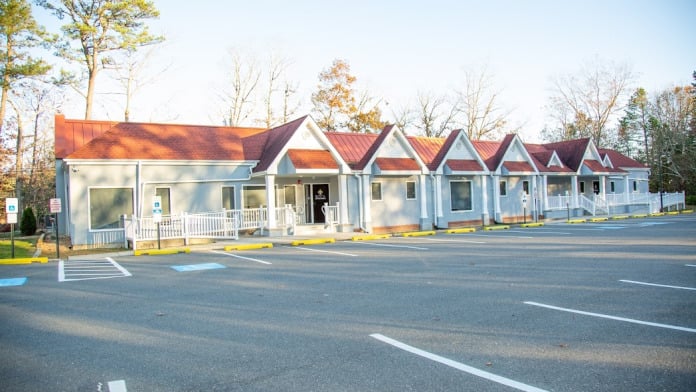
7 7 
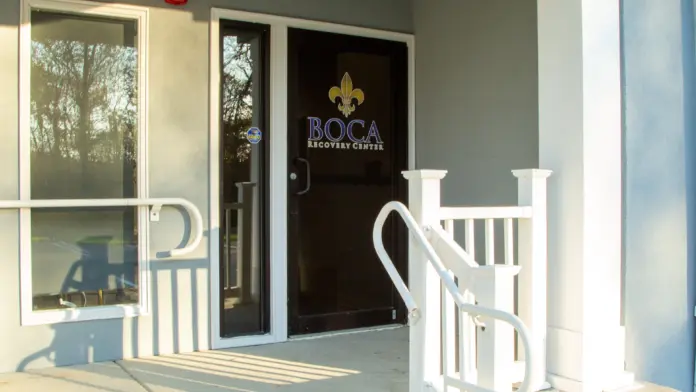
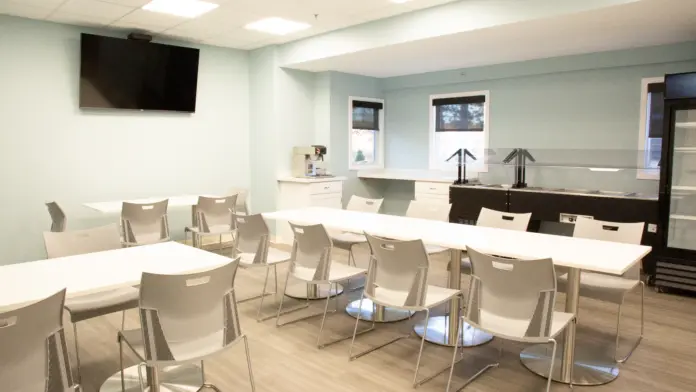

|
Bloomington, IN | The Boca Recovery Center is a luxury alcohol and drug rehab center for adults in Bloomington, Indiana. They specialize in cutting edge addiction treatment provided in a residential setting. One unique part of this alcohol and drug rehab in Indiana is the peaceful, secluded setting. If recovering in a clinical hospital setting doesn’t sound very a | Treatments Programs Payment Options | Boca recovery was a magical experience during a very difficult time that will always hold a special place in my heart. From top to bottom, the support of staff is second to none.
Tyler and Carrie, Carter, Alexx, Ashley, Brooke, Michelle, Meagan, and the rest of the techs are phenomenal. My therapist January opened my eyes to perspectives I had been missing my entire life and Justin the case manager worked tirelessly from the start all the way until his wife gave birth on my last day to make sure I was set up for success.
The nurses are amazing and the medical attention someone needs during this portion of their recovery is 110% offered around the clock.
The place has everything you need from a gym to recreational activities, spacious beds with luxury amenities. And one cannot go without mentioning the chef, Tim. You won’t find better “rehab food” and conversation.
I owe a thank you to the director John for his efforts to get me into a great program after my stay was over.
To anyone struggling with with mental health and/or addiction, I cannot shout praises loud enough for what this program has to offer each and every client that walks through those doors.
If you want a way out, there’s no better place to check in.
Alex K
1 week ago
My name is Derick Caldwell and I had a good time there I learned a lot there the staff was amazing especially the techs and the clients they help me get through my depression and sadness just wanted to say Thanks…I forgot the food was right on time also 😁
James Sander
2 weeks ago
This facility was great to my process of developing into a responsible adult and also putting my future in my hands other than others. Many Thanks to all staff for their efforts. The BOCA thorn in their side has left the building!!!
Josh Fannin
3 weeks ago
| 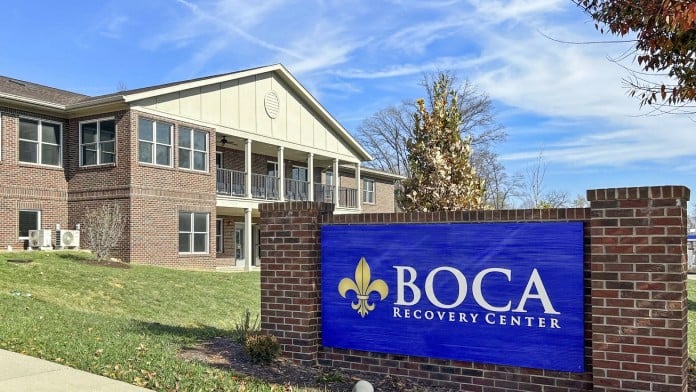
6 6 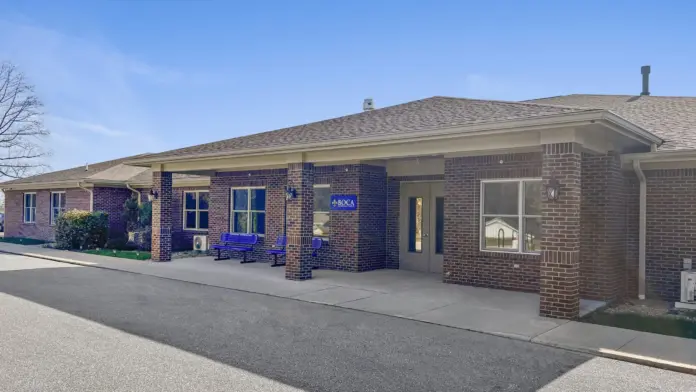
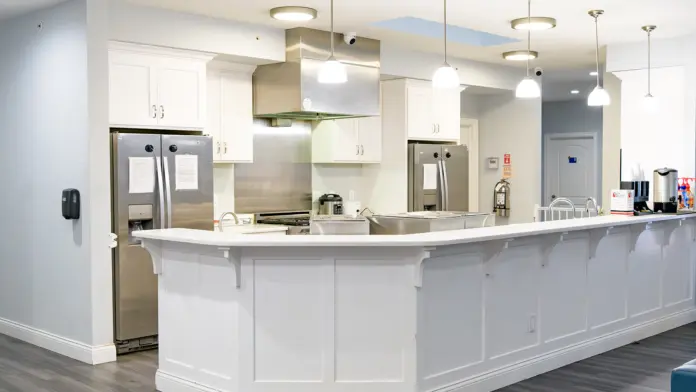

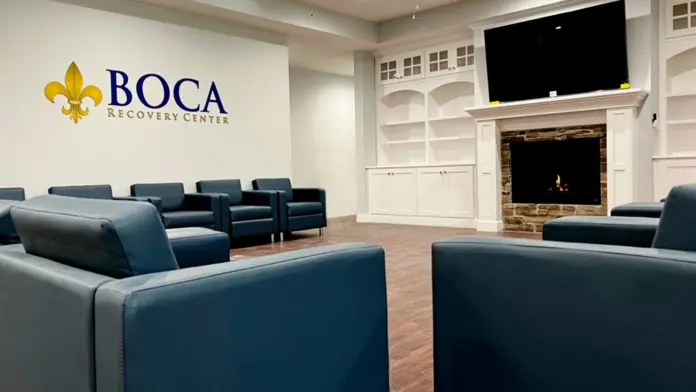
|
Woodbury, TN 6
Top 10 in Teen Program
Rehab Score
Our Rehab Score is designed to make it easier for you to find the best treatment centers. We combine overall ratings with recent feedback to create a score that reflects a center’s quality right now.
8.77 / 10 | If you’re looking for a Christian-based men’s drug rehab center, S2L Recovery in Woodbury, Tennessee, might be the place for you or your loved one. Located at the top of Short Mountain, and overlooking the green hills of Middle Tennessee, this residential and detox clinic boasts a one-to-one staff/patient ratio so there’ll always be someone t | Treatments Programs Payment Options | Coming from Canada, I was hesitant. But God knew that S2L was exactly where I needed to be. At 64 years of age, I was able to discover my true identity, purpose, and mission in Christ. They help you in trying to get clean and sober for sure. But what S2L and the staff are all about is the Gospel of Jesus Christ. That’s why it is so successful.
TIM TANNER
3 months ago
I’ve had the privilege of seeing the life-changing impact this ministry has on countless men & I can’t recommend it highly enough! God has His Hand on this ministry & I’m honored to see the Lord work in these men!
Hunter Stanfield
3 months ago
Come here with a open mind and heart. It can and WILL change your life in all ways. Trust the process and trust God! Could go on and on about how amazing this place, I’ll forever be grateful!
Trevor Woodard
3 months ago
| 
6 6 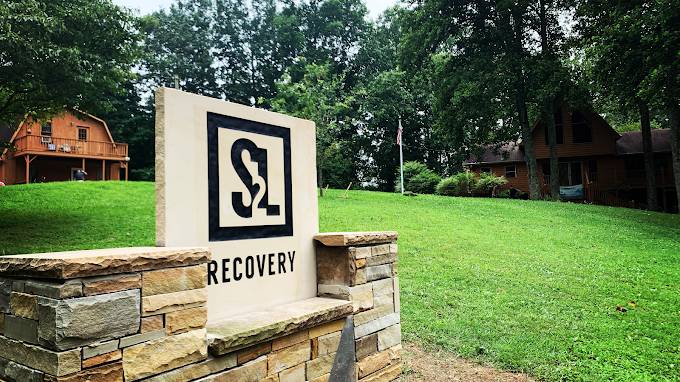

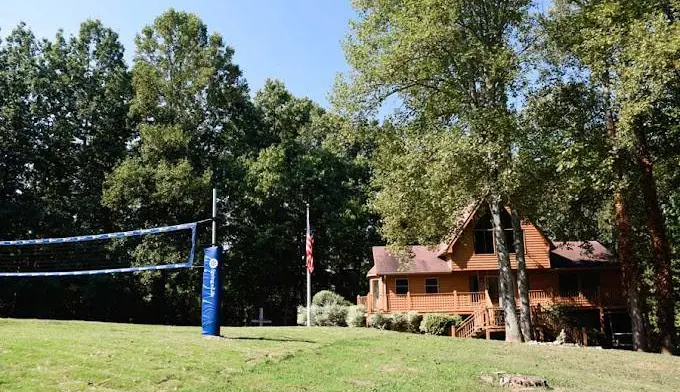

|
Levittown, PA 7
Top 10 in Teen Program
Rehab Score
Our Rehab Score is designed to make it easier for you to find the best treatment centers. We combine overall ratings with recent feedback to create a score that reflects a center’s quality right now.
8.76 / 10 | The Steps To Recovery addiction treatment center is situated in Levittown, Pennsylvania. At this drug rehab center, patients can expect to engage in a unique treatment approach that focuses on helping individuals recover through authenticity, intimacy, community connection, and transparency. Steps to Recovery offers a serene and private environ | Treatments Programs Payment Options | Good place, great housing
Nicole Rivera
2 months ago
Amazing support network and great staff lovely time with my stay at STR buck
William Perry
2 months ago
My experience at Steps to Recovery has been great for the most part, the people and the environment are very welcoming and comforting. I have had some issues that have come up, but they usually get resolved. My only main gripe is with some of the other clients at the community living house fail to clean up after themselves, and some do not know self control. But, the staff here is very professional and easy to talk to. I find that the opportunities here for my recovery journey are pretty good, although I’d like access to more holistic therapy resources. I’ve actually personally facilitated a Dharma meeting and will facilitate more in the future. I appreciate my time here at STR and am excited for the future with them.
Jerry Davis
2 months ago
| 
6 6 



|
Watsonville, CA 8
Top 10 in Teen Program
Rehab Score
Our Rehab Score is designed to make it easier for you to find the best treatment centers. We combine overall ratings with recent feedback to create a score that reflects a center’s quality right now.
8.76 / 10 | Located in Watsonville, California, Elevate Addiction Services provides alcohol and drug rehab services to men and women suffering from addiction. Their levels of care include detox, inpatient treatment, and outpatient treatment. One of the best ranked Outpatient treatment centers in California, Elevate Addiction Services provides a wide continuum | Treatments Programs Payment Options | I have been through other treatment facilities in the past; but Elevate has by far been the best experience I could’ve hoped for. Recovery isn’t just the ability to abstain from substances, but the capability of transforming from within. Not only has Elevate help me appreciate the things within me but everything around me as well. Thank you, Elevate for changing the trajectory of my life and my marriage!!
Michael Amodeo
2 weeks ago
Great place. The staff super nice amd very knowedgable about addictions. Its a very special place. Better than all others ive gone to. Definate thumbs up
Tyler Kerney
4 weeks ago
Our experience with Elevate Addiction Services has been truly life-changing. From the very beginning, the director, family liaisons, counselors, therapists, continuing care coordinators, house dad’s – we felt genuine compassion and care from everyone we had the pleasure of interacting with. We were kept informed of how our son was doing every step of the way. It never felt like we were alone in this. Everyone at Elevate was fighting for our son right alongside of us.
The love and compassion shown to our son meant everything. Today, he is living clean & sober, feeling confident in the tools and foundation Elevate equipped him with. Elevate welcomed him with open arms. Watching him complete the program and graduate has been one of the proudest moments of our lives.
We are so deeply grateful for Elevate and the loving and compassionate professionals who work there.
Without hesitation, we would highly recommend Elevate Addiction Services to anyone seeking help for themselves or a loved one. They helped our son find his way back.❤️
Kenny & Shelly Wright
1 month ago
| 
5 5 

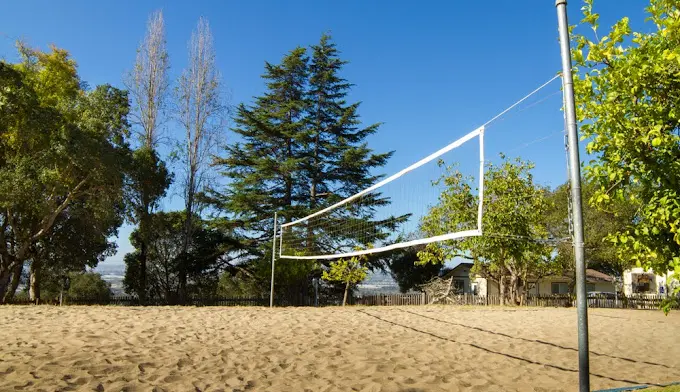

|

Drug Use and Addiction in Teens
Drug Use and Addiction in Teens
In 2018, The United Nations reported that around 269 million people used drugs. This was a 30% increase in 2009, and just as concerning, adolescents and young adults accounted for the largest share of users. Using drugs is commonplace, and for many people, substance use starts with adolescent experimentation. Often it is viewed as an inevitable rite of passage, and, as a person grows up, the novelty fades, priorities shift, and the opportunities and desire to take drugs lessen. For some, though, this initial teenage experimentation leads to the abuse of more and different drugs and eventually addiction.
As a parent or caregiver, navigating the situation when your teenager starts to use substances can be difficult. You may be concerned about their well-being and the risk of serious health issues or death. Although teenagers often use substances without lasting harm, and you may well have done so yourself, there is always an associated risk. The Center for Disease Control and Prevention states that the majority of adults who meet the criteria for having a substance use disorder started using substances during their teen and young adult years. Even if they are not yet addicted, they may become addicted in the future.
You should trust your instincts, and if you suspect, or know, that your teenager’s use of substances is a cause for concern, there are things you can do to help. By addressing the situation now, you can reduce the chances of long-term harm and addiction.
What Are the 4 Stages of Teenage Substance Use?
What Are the 4 Stages of Teenage Substance Use?
While every person and every drug is different, there are four stages an adolescent will go through to become addicted. It is essential to differentiate between occasional use, substance abuse, and full-scale addiction. While casual use can develop into an addiction in time, the approach a parent makes and the treatment of the situation should reflect the stage at which the individual is currently:
Stage 1: First Use
All substance use starts with the first time, whether it is a prescribed drug, an illegal drug, or alcohol. The reason for the first use depends on the person and the substance. Teenagers are more prone to their peers’ influence than older people; therefore, it is often the case that they try the substance because their friends are using it.
Stage 2: Regular Use
Many people experiment with substances, especially teenagers, but it does not always lead to addiction. For some, though, substance use increases outside of its intended purpose in the case of prescription medicine. Similarly, with other drugs, it is no longer just used occasionally or socially. The substance is taken more regularly or in more significant quantities to replicate its effect during the first few times of use.
Stage 3: Abusive Use
Substance abuse is excessive use of a drug in a way that is detrimental to self, society, or both. A teenager’s life will begin to be negatively affected at this stage. They may be developing a tolerance to the drug, meaning they need more to have the same effect. They may also suffer from withdrawal symptoms and are taking more of the substance to alleviate these feelings.
Stage 4: Addiction
At this time, alcohol or drug addiction has developed, and the substance has completely taken over the teenager’s life. They depend on the drug, and their main priority is to find and use it. Despite the detrimental effects on all aspects of their life, including relationships, health, money, and school or work performance, they cannot stop taking the drug. They may be estranged from family and friends, homeless, and turn to crime to fund their addiction.
What Are the Dangers of Drug Abuse for Adolescents?
What Are the Dangers of Drug Abuse for Adolescents?
While older people have higher rates of substance abuse, many teenagers still have drug and alcohol addiction issues. The SAMHSA 2018 Survey on Drug Use and Health found that 2.7% of adolescents (aged 12 to 17) had an illicit drug use disorder, and 1.6% of adolescents had an alcohol use disorder.
2.7% of Teens Had an Illicit Drug Use Disorder
1.6% of Teens Had an Alcohol Use Disorder
Dangers associated with substance abuse include increased risk of health problems and loss of relationships with friends and family. There are some risks, though, that are more prevalent in teenagers than in other groups in society:
1. Impact on Brain Development
One area of particular concern is the development of the brain during a critical period of development and maturation.
Substance abuse can have a negative impact in the following areas:
- Long term memory
- Learning ability
- Development of anxiety disorders
- Ability to assess risk
- Chances of developing a substance addiction
2. Impaired Decision-making Abilities
Studies have shown that the effect of substances on a young person’s decision-making skills is of particular concern. Risky decision-making is especially apparent with sexual behavior. For example, one study found that nonmedical use of prescription drugs puts high school students at risk for sexually transmitted infections. Even a less potent drug such as marijuana increases the occurrence of risky sexual activity. Marijuana use by age 14 years clearly distinguished girls who became pregnant by age 15 years.
Other risks associated with substance use and impaired decision-making include:
- Car accidents
- Involvement in fights
- Wasted opportunities at school and work
- Getting into trouble with the Police
3. Mental Health Issues
Substance abuse while the brain develops in adolescence can increase the risk of mental health disorders, including depression, anxiety, and obsessive-compulsive disorder. Half of the individuals who experience a substance use disorder during their lives will also experience a mental health co-occurring disorder.
4. Chances of Overdose
With all substance use, there is a risk of overdose and death. Drug overdose amongst teenagers is still relatively uncommon compared to other age groups but is rising. The Center for Disease Control and Prevention reported that the greatest percentage increase in drug overdose from 2019 to 2020 (49%) occurred among young people aged 15-24.
Is My Child at High Risk of Substance Abuse?
Is My Child at High Risk of Substance Abuse?
Although anyone can abuse substances and develop an addiction, certain factors identify those at a greater risk. Many of these factors are associated with childhood experiences. The National Institute on Drug Abuse states that the more risks a child is exposed to, the more likely the child will abuse drugs.
Examples of high-risk factors include:
- History of substance abuse in the family
- Sexual abuse
- Mental health concerns
- Lack of parental supervision
- Struggles with gender identity and sexual orientation
- Socializing with peers who abuse substances
- Feelings of failure or unhappiness at school
If you know that your child has any risk factors, it is advisable to address them as early as possible. Studies suggest that early intervention following childhood trauma exposure could help reduce the risk of developing substance use disorders.
7 Questions To Ask Yourself if You Are Concerned That Your Teenager Is Addicted to Drugs
7 Questions To Ask Yourself if You Are Concerned That Your Teenager Is Addicted to Drugs
Knowing how todetect the early signs of drug use in teenagers will enable you to address the matter quickly, reduce the chances of escalating situations and enhance the prospect of long-term recovery.
7 common signs of drug use and addiction in teens are:
- Have their social habits changed? If they have started to withdraw from friends and family and are avoiding situations that they used to enjoy, this may be a sign that they are using drugs. They may have new friends and acquaintances, and you may be cautious or consider them a bad influence.
- Do they have a lack of interest in activities? If your teenager suddenly seems disinterested in hobbies and pastimes that they previously enjoyed, this could signify that they are taking drugs and that this has become their main priority. Sometimes they still partake, but their performance in sports and other activities suffers due to withdrawal symptoms.
- Have their sleeping patterns changed? Is your teenager sleeping more or less than usual or at unusual times of the day? Teenagers can often be difficult to rouse in the morning, but this can become even more challenging when using drugs.
- Is their schoolwork suffering? If you have seen a noticeable downturn in their academic performance, this could be due to a lack of interest or motivation in learning and doing well. When someone is addicted to drugs, they struggle to concentrate on anything else and instead spend their time seeking opportunities to take more drugs.
- Has their physical appearance changed? Withdrawal symptoms and the effects of drugs can cause someone to eat more or less than usual and, as a result, gain or lose weight rapidly. Due to a lack of motivation in things unrelated to drugs, they may start to neglect their physical appearance and show signs of being ill such as sunken eyes and pale skin. Their clothes, skin, and hair may have different smells you do not recognize.
- Are they behaving differently? Teenage behavior can be unpredictable, but as a parent, you may be concerned that they are acting especially erratically or are particularly moody. They may be making bad decisions, rebelling against family rules, or getting into trouble with the Police. They may appear more anxious and paranoid than usual, which are common withdrawal symptoms from drugs.
- Have you caught them lying to you? When teenagers engage in activities they know their parents would disapprove of, they often become secretive and tell lies to cover their tracks. You may find that they hide away from you more than usual and are noticeably more protective over their belongings and personal space, such as their backpack, bedroom, or car.
9 Tips for Talking to Your Teenager About Substance Abuse
9 Tips for Talking to Your Teenager About Substance Abuse
If you answered yes to some of the questions above, you might wish to address your concerns with your teenager. It can be challenging to know where to start. Or maybe you have tried to raise the subject but been met with hostility, defiance, or disregard? Here’s how to properly discuss addiction and addiction treatment with your teenager:
1. Find the Right Time and the Right Person
The best opportunity to raise the conversation about addiction and treatment is when your child is calm and relaxed. Find a time when they are not rushing out or to school and do not seem preoccupied or concerned about anything. Consider asking for help from a family member or family friend with whom your child has a particular bond. Strained relationships between teenagers and their parents or caregivers are common regardless of addiction, and therefore, someone else may have more success.
2. Take a Calm Approach
To prevent your child from becoming immediately defensive and refusing to open up to you, it is essential that your approach is inviting and non-judgemental. Sometimes this can be difficult, especially if you are concerned for their wellbeing or angry at their behavior, but it is best to take a step back and calm yourself before approaching them. When discussing issues, use open questions that allow your child to express their thoughts and feelings fully.
3. Listen for Their Motivation To Change
Often it is said that for someone to embark on the road to addiction recovery, they first have to want to change. If your child comments about changing fundamental aspects of their life, such as work, school, or place to live, this could be an ideal time to begin a discussion about change in general. They may express reluctance, frustration, or identify blockages in the changes they want to make, providing an opportunity to ask questions about their drug or alcohol abuse. You can ask them whether they think that it is restricting their options and holding them back from moving forward with their life.
4. Be Prepared but Open to Suggestions
Make sure you research beforehand and have some treatment options available for when your child is willing to discuss them. Although you may have already decided on the right course of action, it is important not to dictate this to your child. Allow them to explore various options and make suggestions. Empowering your child to make the decisions for themselves enhances motivation and chance of recovery success.
5. Consider Discussing Consequences
You may find that your child’s motivation to recover is directly linked to the consequences of doing so or not doing so. Some parents decide to incentivize their teenagers to commit to treatment. Incentives could be related to the changes their child is keen to make, such as driving lessons if they have expressed a desire for more freedom. Conversely, some parents choose to restrict their child financially or in other ways if they do not accept help. It is crucial to proceed with caution with this approach as it can lead to rebellion and a breakdown of family relationships, making helping them even harder.
6. Have Patience
Often this process is not a one-off conversation. After initially broaching the subject, you may need to leave it for a few days to give your teenager a chance to process what was discussed and start making some decisions for themselves. Subsequently, your child may even choose to continue the conversation with you, which is a positive sign that they are seeking help.
7. Consider an Intervention
Staging an intervention can have mixed success. If all other attempts have failed, friends and family may get together to confront the addicted person and issue an ultimatum whereby they must accept help or risk being estranged or cut off by their loved ones. Forced compliance is not always ideal because, initially, the teenager may not have the motivation required to commit to treatment.
Learn how to properly stage an intervention for drug or alcohol addiction.
8. Consider Legal Action
If your child is a danger to themselves or others, they can be committed to treatment in most US states. This approach can be brutal and harrowing for all concerned, but for some parents, it is the only option to ensure their child’s safety.
9. Investigate Family Training and Support
If your attempts to address addiction and treatment with your teenager have been unsuccessful, you may wish to consider a different approach. Various forms of family therapy, counseling, and Community Reinforcement and Family Training (CRAFT) are available. These sessions assist parents with understanding their teenager’s addiction and provide strategies for addressing behavior and discussing the way forward.
Where To Find Addiction Treatment Support for Your Teenager
Where To Find Addiction Treatment Support for Your Teenager
Once you have broached the subject of addiction treatment and received a favorable response, you will need to know where to turn for reliable and trustworthy advice and support. There are many options available specifically dedicated to teen addiction. Some examples are:
Where To Find Addiction Treatment Support for Your Teenager
- SAMHSA’s national helpline: SAMHSA provides a free, 24/7 helpline offering bilingual support (English and Spanish) for anyone seeking advice on substance addiction and mental health issues. Call: 1-800-662 (HELP) 4357
- Partnership to End Addiction: This national non-profit organization includes the Partnership for Drug-Free Kids and works to support families and increase access to support groups and treatment programs for teenagers. You can reach help by texting CONNECT to 55753.
- Adfam – A national charity dedicated to tackling the effects of alcohol, drug use, or gambling on family members and friends. With online resources to help empower those affected along with their loved ones.
- 988 Suicide & Crisis Lifeline – Previously the National Suicide Prevention Lifeline, you can receive mental health and crisis support by calling the new shorter and easier-to-remember phone number: 998.
- Rehab.com Helpline: This free and confidential helpline provides trusted advice and support for anyone affected by addiction or mental health issues. Call (833) 386-0206 to receive the help you need.
What To Expect From Substance Abuse Treatment for Teenagers
What To Expect From Substance Abuse Treatment for Teenagers
Now that your teenager has acknowledged that they need help, you may wonder what the various drug rehab programs are and which is suitable for your child. The first thing to be aware of is that everyone’s treatment plan is different. It depends on the needs of the individual, what substance or substances they are abusing and whether they have a co-occurring mental health concern.
As a general rule, alcohol, and drug treatment programs for teenagers have the same options available as for older people:
Often the first step in the rehabilitation process, patients undergo detoxification from the substance they are addicted to under the care of medical professionals. Their withdrawal symptoms are monitored and managed to ensure that the process is as safe as possible.
Patients enrolled in a residential treatment program live at the treatment facility and partake in various treatments. These can include individual therapy sessions, including Cognitive Behavioral Therapy (CBT), peer support groups, and holistic therapies such as meditation.
Partial Hospitalization Programs (PHP)
Also known as intensive outpatient (IOP), these treatment programs are designed for those who need more structure than standard outpatient treatment but do not live full-time at the recovery center. Therapies on offer are similar to inpatient programs but take place several days a week for several hours, and the patient returns home afterward.
Designed for those who wish to still live at home and attend to family and work commitments, outpatient treatment plans are more flexible and generally take place over a more extended period. Patients attend therapy sessions, including individual and group therapy, once or twice a week.
Once a person has been through the various steps prescribed within their treatment plan, they must have an effective aftercare plan to help them maintain sobriety. This plan can include ongoing outpatient sessions and peer support through groups such as Narcotics Anonymous.
Why Attend a Dedicated Teen Rehab Center?
Why Attend a Dedicated Teen Rehab Center?
Some recovery centers will not accept patients under 18 years of age; therefore, you may need to find one with addiction treatment plans specifically designed for adolescents. While the treatments on offer are likely to be similar to other treatment centers, a dedicated teen rehab program will take into account the specific needs of young people. Some of the benefits of this are:
Fully Trained and Experienced Staff
The staff at dedicated teen drug rehabs are trained to interact with teenagers effectively. As stated in an April 2022 news release from the National Institute on Drug Abuse, we want to minimize shame and sense of failure for young people with Substance Use Disorders. They will ensure that their patients do not feel judged or patronized and will listen to their opinions and feelings. If a treatment plan is too regimented or does not cater to their specific needs, it could cause teenagers to lose faith in the process and rebel. A good treatment program for adolescents will ensure they receive the right level of care in the right way. The treatment suggested will be as engaging as possible to maintain motivation and commitment to recovery.
Behavioral Health Support
The treatment services available will likely include mental health treatment programs specifically designed for adolescents. They will address the impact of drugs on developing brains. They will also address teenage behavioral health and encourage healthy decision-making skills. Teenagers will be provided tools to avoid situations and people encouraging them to take drugs. They will be offered alternative coping mechanisms for dealing with stress, anxiety, and other aspects of their life.
Support from Peers
A further benefit to a dedicated teen rehab center is developing relationships with people of a similar age with similar experiences. Peer support can be highly effective in ensuring long-term recovery from substance addiction.
How To Pay For Adolescent Addiction Treatment
How To Pay For Adolescent Addiction Treatment
Once your teenager has agreed to receive help and you have received pricing information from your chosen drug rehab center, you may be concerned about how you will pay for it. Most accredited healthcare providers have a variety of payment options available.
If you have the funds available, you can usually choose to pay outright or in installments. In some cases and some states, it is possible to obtain support through government grants and charities. Even if this is the case, it is still a good idea to check with your health insurance provider as all policies must, by law, include some drug and alcohol addiction treatment. It is also worth exploring Medicaid and other forms of public healthcare insurance.
As a parent or caregiver, there are many ways in which you can help your child to overcome addiction. Witnessing the effect that drugs or alcohol are having on your child can be scary and upsetting, and addressing the situation can be fraught with challenges. To make this process as smooth as possible, you must find the best approach for both of you. The most important thing is to start now, as addressing the situation as soon as possible is imperative to achieving a successful outcome. By assisting your child onto the path to recovery, you can help ensure that they have a happy and healthy future.
Nearby Teen Addiction Centers
Finding facilities near you…
